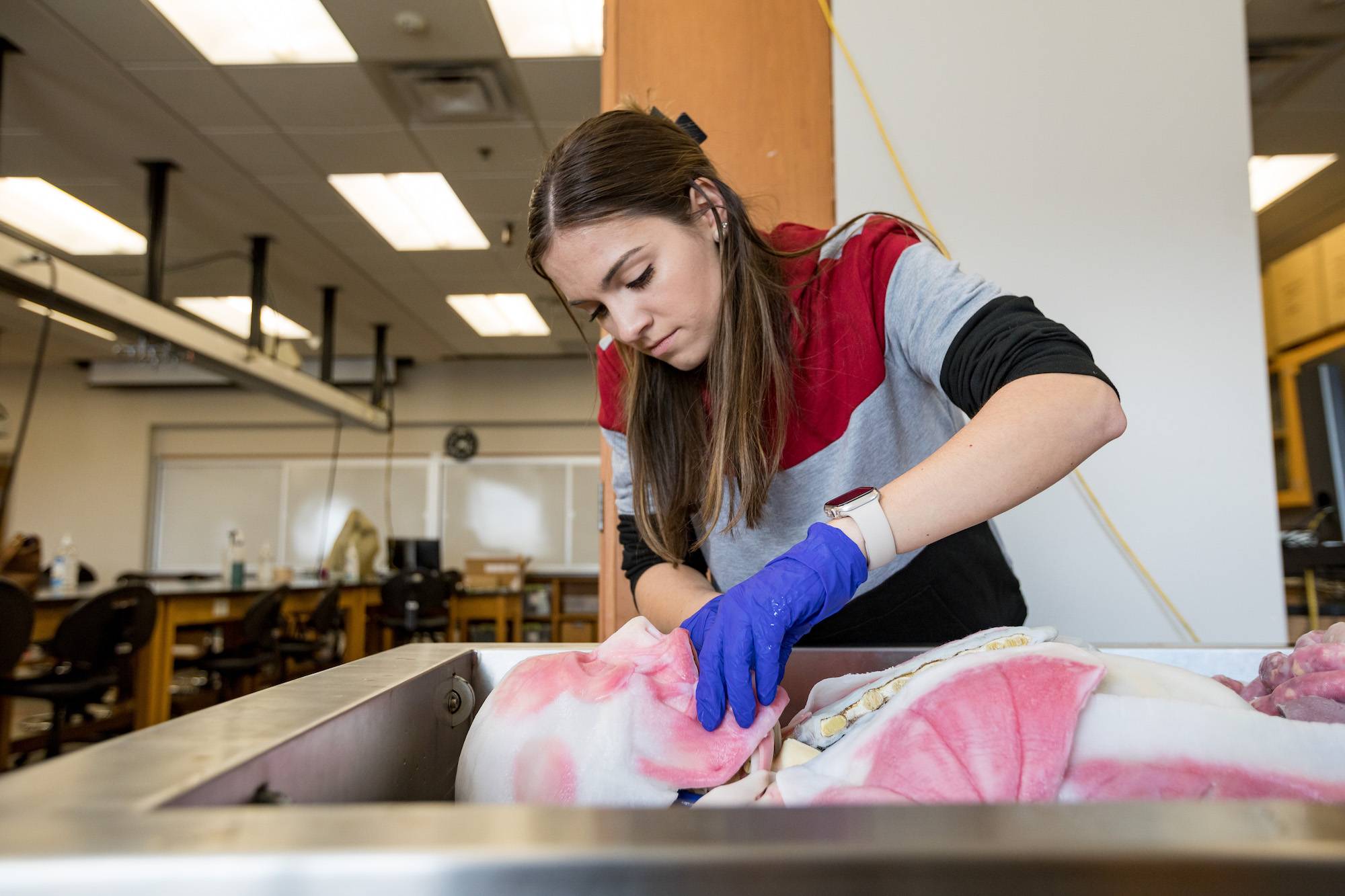Baccalaureate Degrees in Biology
The Department offers four undergraduate majors – in biology (2), medical laboratory science, and molecular biotechnology – each of which leads to a B.S. degree. We also offer a minor in biology. All of our degree programs offer the opportunity to work alongside faculty and staff in research and are focused on preparing you for what comes next, be it a career, graduate or professional school. Click on the links below to explore our different programs and find the one that is right for you!

Biology, Bachelor of Science
The major in biology (525) provides students the opportunity to undertake an in-depth study of biology. A minor, second major, or certificate is not required. In addition to a required core, students complete a range of biology elective courses that can be tailored to their individual interests. In addition to coursework, students have the opportunity to apply up to six semester hours of faculty-guided independent research and/or internship towards their degree. This program is particularly well-suited to students interested in pursuing advanced study in a biology-related field or who require training in specific areas to support their career goals.
The major in biology (617) gives students an opportunity to couple broad-based study in biology with a second major, minor, or certificate. In addition to coursework, students may apply up to three semester hours of faculty-guided independent research and/or internship towards their degree
Medical Laboratory Science, Bachelor of Science
An important part of health care is Medical Laboratory Science, formally known as Medical Technology, a profession that includes well-trained, highly educated individuals who are the fact-finders of the medical world. Medical Laboratory Scientists typically analyze body fluids, examine tissues, and identify specific microorganisms to find evidence for and the cause of specific diseases such as AIDS, Diabetes, and Cancer. Some of the exciting new demands of the profession include tissue typing for organ transplantation, chromosomal studies as a basis for genetic counseling, identification of environmental pollutants, and screening tests for accidental poisoning and drug abuse. The demand for graduates in this field is very high.
The Medical Laboratory Science program combines a minimum of three years (96 semester hours) of college courses at Western Kentucky University with a minimum of 12 calendar months (36 semester hours) of satisfactory clinical training in a school of Medical Laboratory Science (Medical Technology). The program is affiliated with the following schools of medical technology: Bellarmine University, Louisville, KY; Owensboro Medical Health System, Owensboro, KY; Vanderbilt Medical Center, Nashville, TN; and St. Elizabeth Medical Center, Covington, KY.
Molecular Biotechnology, Bachelor of Science
The molecular biotechnology major allows students to be part of some exciting new developments like genomics, personalized medicine, cloning, organoid research, and genome editing. The skills acquired may be applied to the development of new pharmaceutical drugs or other medical products, industrial chemicals, food products, energy sources, pollution-control products, or agricultural products. Employment can be found in industry, but graduates of this program will also have the broad science training necessary to enter graduate programs.
Biology, Minor
The minor in biology (326) provides an opportunity for students to couple training in their primary discipline with an understanding of the foundational concepts, theories, patterns, and processes in the biological sciences. Beyond the core, the biology minor is flexible, allowing students to tailor their coursework to their primary areas of interest.
Secondary Teaching Certification in Biology
Students who wish to be certified to teach high school biology must complete both the major in Biology (reference number 617) with a teacher education certification (TCHR), and the major in Science and Mathematics Education (reference number 774). Interested students should contact the SKyTeach Office, Kelly Thompson Hall 1011A, 270-745-3900 or visit www.wku.edu/skyteach.
Biology Department Scholarships
Phone: (270) 745-3696
Fax: (270) 745-6856
- biology@wku.edu
1906 College Heights Blvd, #11080
Bowling Green, KY 42101-1080

